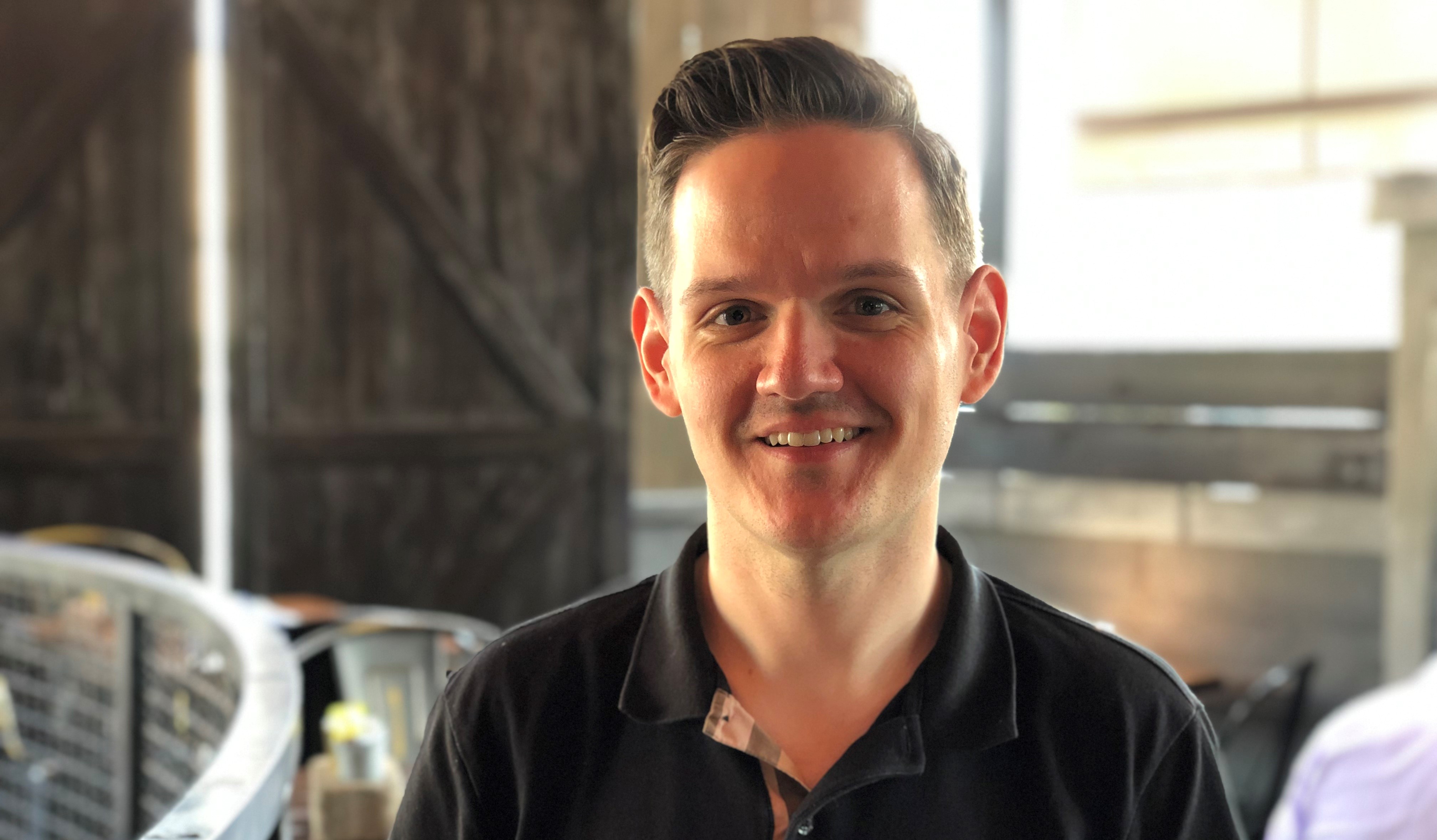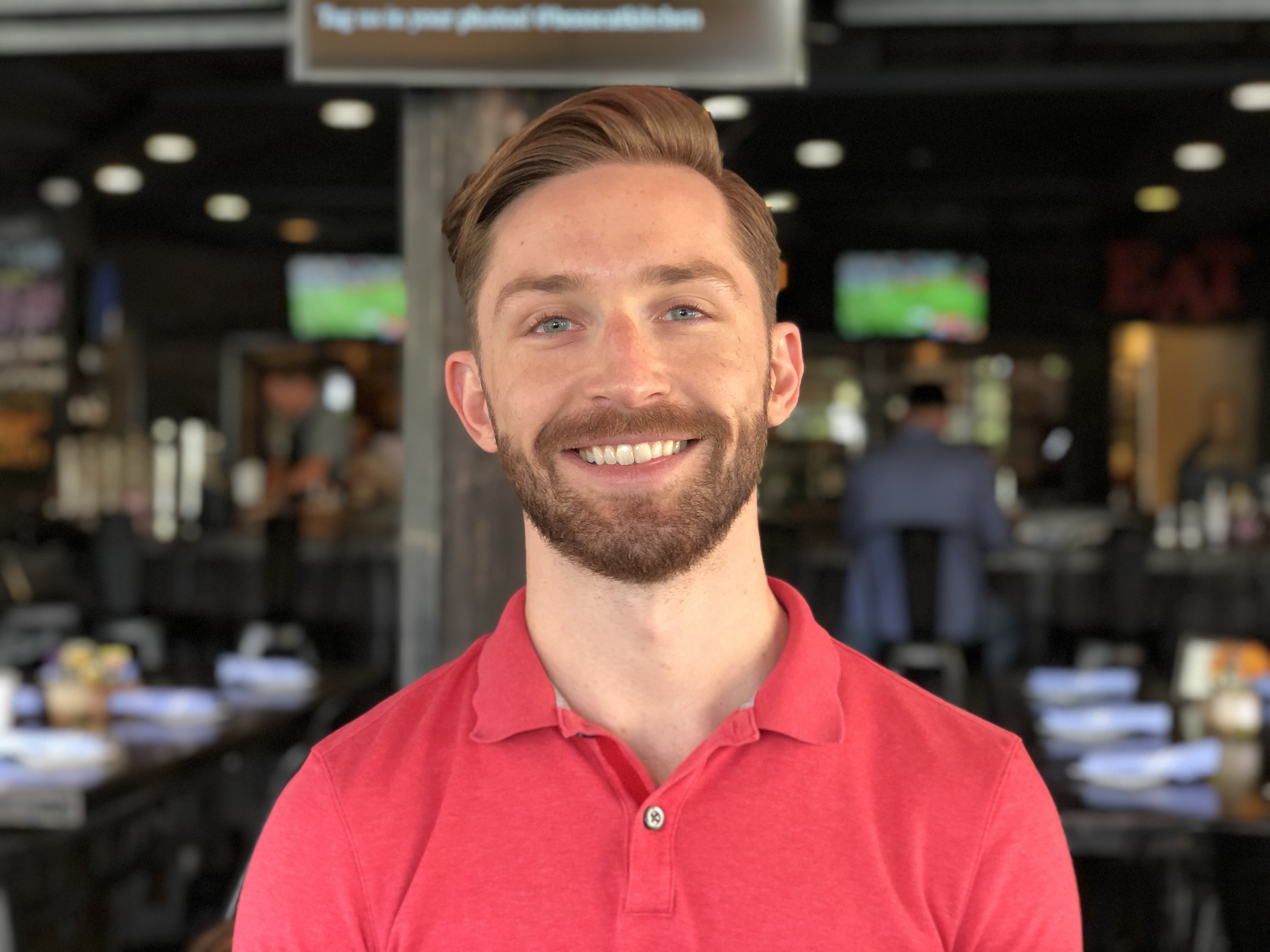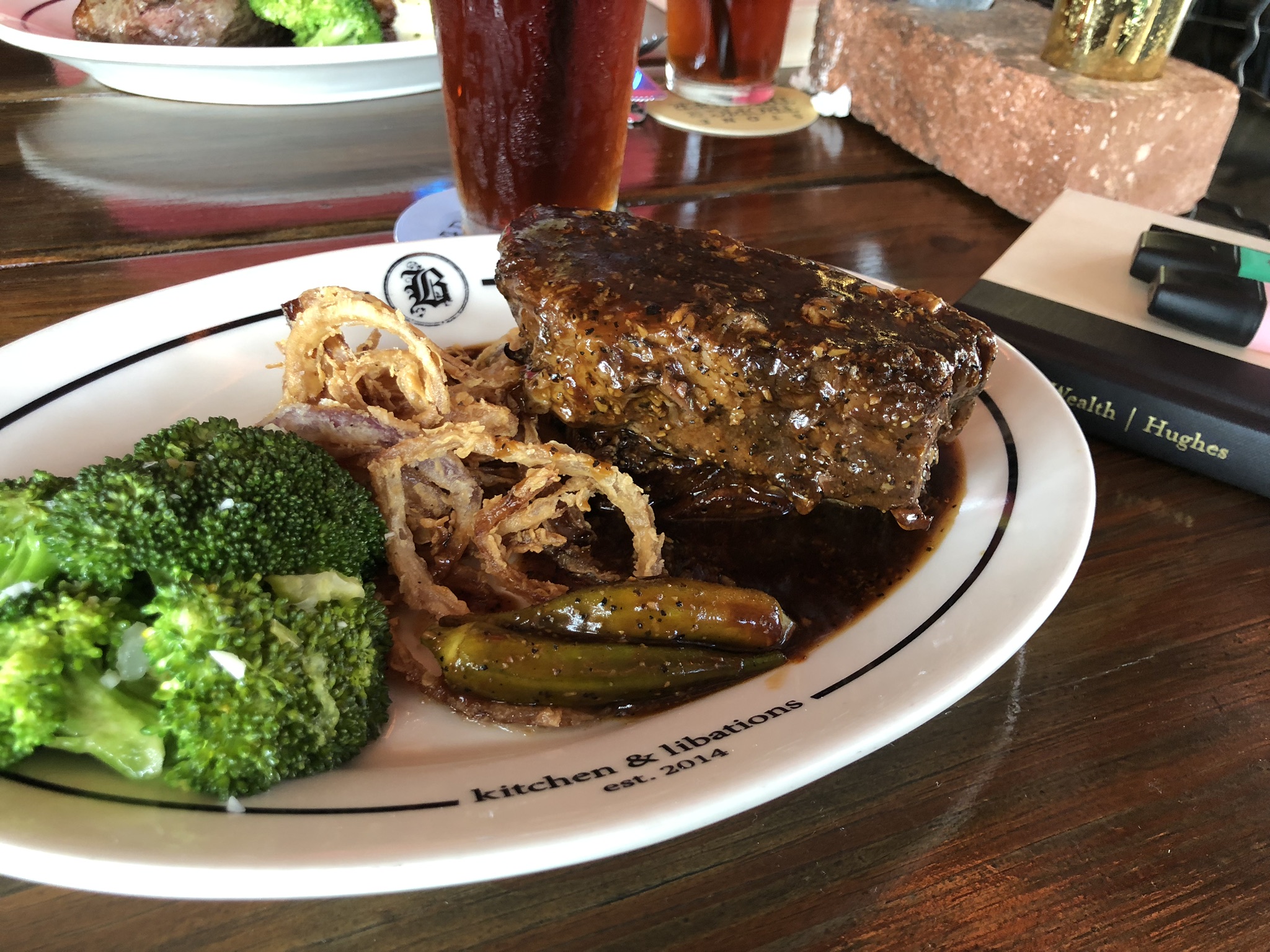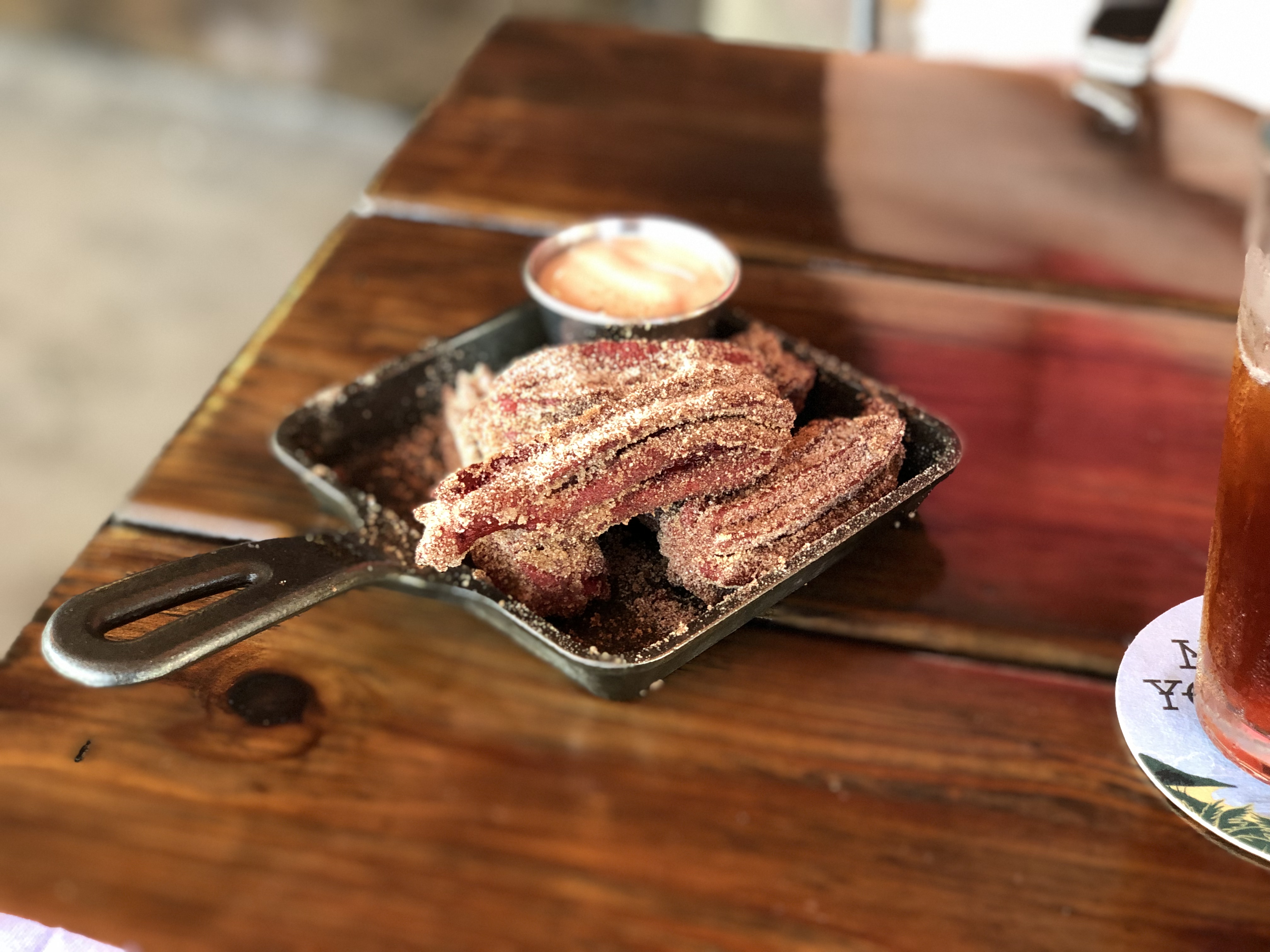Three Questions That Can Dramatically Improve Your Life
Thoughts and Reflections on My 37th Birthday
It’s exactly 10:30 p.m. in Newport Beach. I’ve wrapped up my work for the day – I had quite a few things I needed to do long after the firm closed at 4:00 p.m., including getting out several contracts for new clients, which is the reason I’m still at my desk this late into the evening – but I’ve been thinking about life, long-term plans, family wealth governance, and a host of other related matters. One of the major causes for this reflection is that we celebrated my 37th birthday today.
It should come as no surprise if you’ve read posts like this one or this one that I’m a big believer in appreciating both the precious, and limited, nature of time and capital, as well as facing reality head-on even when it is not pleasant. Today marks my 13,514th day of life; a life for which I am immensely grateful and that I wouldn’t trade for any other. As I am prone to occasionally do, I used this milestone to update my personal estimates and run several sets of numbers, including having a new actuarial calculation performed based upon my individual relevant inputs so that my life expectancy can be better projected. The newest data: all else equal, and assuming I don’t get into an accident or suffer from some lower probability misfortune such as stepping in front of a bus or slipping on ice in precisely the wrong way, I might enjoy another 20,454 days before my journey comes to an end. That would put me at 93 years old sometime during the year 2075. (Of course, as with all life expectancy estimates, they are complex for a number of reasons including the fact that the older you are, the more likely it is you will survive longer. For example, at 88 years old, life expectancy for a similarly situated person would be higher than 93 years old, changing the probabilities.) Aaron’s numbers are roughly comparable, due in no small part to the fact we are socioeconomically identical, we were born within 50 days of each other, and we both have family trees with ancestors who lived comfortably into their nineties. This is for the best because he insists I’m not allowed to die first and I’ve said the same to him. Of course, it isn’t up to either of us. Such is life.
Let me be clear that I am not banking on another 20,454 days, only using it as a general approximation for some of our planning decisions. I consider every day a gift and take none of them for granted. I often remind myself, “This day will not happen again.” Sometimes, I go so far as to say it out loud because it causes me to focus on a fact that is simultaneously liberating and somewhat terrifying: how I choose to use it will have enormous ramifications for not only me, but my husband, our future children, grandchildren, clients, society, and the world. The power to choose, particularly through the allocation of time and capital, is the power to shape reality. You can plant trees or cut down the forest. You can design and develop beautiful real estate projects that serve as the background of people’s lives, forever forming part of their memories and experiences in positive ways, or you can be a slum lord who oppresses them, adding to their misery.
You are your choices.
Your choices matter.
This is the reason I spent so much time in my twenties talking to you about the importance of things such as clearly identifying the primary mission of your life. Likewise, it’s the reason I tell you to seek to understand the underlying motivation behind your behaviors; to identify your intention when you act. When you have a hierarchy of priorities, you can make decisions that get you to your desired outcome and/or circumstances more efficiently. It’s the reason I try to remind you not to let your priorities and goals be determined by your family, friends, social network, neighbors, or society. You are the most good to the world when you become the best version of yourself; when you build a life that allows you to unleash your own talents and skills in a way that helps others. If I made choices based upon what other people thought would make me happy, I’d be miserable even if my life had looked enviable to the outside world. Most of the time, others were not trying to be cruel, they were simply making the common mistake of assuming that the keys to their own happiness were the same keys that would allow others to experience happiness. My vision, and faith, for my life were bigger than theirs. Yes, they loved me in their own way, but it was not unconditional love and it would have kept me a slave in Egypt, to make a well-known allusion. Never allow the affection of others to become irons which enshackle you. People who mean well, but who are misguided, can and will keep you from your highest destiny if you let them.
Don’t settle. Figure out what you want and go after it like a heat-seeking missile. (That said, be sure to leave every place better than you found it. You may not always be successful, but if you try to help others, and make things easier for them along the journey, that is a worthy objective in and of itself. This sentiment is related to something Dolly Parton once stated – that she won’t step over people to get to her destination, but she may have to walk around them if they won’t get out of the way.) You can improve the odds of reaching your personal Elysium if you internalize two beliefs:
- You deserve everything you want. That is, if other people have it, there is no reason you shouldn’t enjoy it, too, provided you are capable and willing to do what it takes to achieve it.; and
- You are entitled to nothing. No one is going to hand you your dreams on a silver platter like ordering afternoon tea at a resort. That isn’t the way life works. The sooner you accept that, the happier and more effective you’ll be. You might have to climb down into the mud, getting your hands dirty in the process. It might take years, decades, or even a lifetime depending upon the level of your ambition. The key is to have fun along the way. In some cases, you must accept that some things are not in the cards for your particular life. If you are in the bottom 10% of population distribution for height, and don’t have an athletic bone in your body, you aren’t going to become an NBA champion. Deal with it. You might be able to become a sports agent to such people. Or maybe even own a team, someday. It’s possible you could have a career in broadcast journalism, enveloping yourself in that world. Or maybe you simply hold season tickets to your favorite team. Trade-offs and opportunity cost are inescapable. Even though you can discard and pickup many cards during the course of your individual game, some of your original deck is set for life and represents a permanent advantage or handicap. Again, deal with it.
There are three questions that Aaron and I organically developed and periodically revisit together; mechanisms for us to implement these beliefs and this philosophy into our own behavior. From time to time, we will shut out the outside world and discuss each of the questions in private, sequentially in the same order as presented in the remainder of this post. Each is important. Each plays a role in our strategy. It’s something we’ve done for a long time, and that I occasionally discuss with people in person, but about which I haven’t written a great deal.
Question #1: If we were to wake up 15 years from today, and look back over the time that has passed between this moment and when we awoke, what action(s) are we taking, or behavior(s) have we adopted, that are going to cause us regret?
First, think of your body as biological hardware. It has certain quirks of neurology and physiology that are intrinsic to you and, in many cases, shared among most people. A lot of these form the “mental models” that we discuss and can be exploited for both good and bad, gain and loss.
Next, think of the household in which you were raised, the culture in which you reached adulthood, the religion to which you were exposed, the school system through which you matured – all of it – as software installed on that biological hardware. Not all homes, cultures, religions, and school systems are equal in terms of helping you live a successful life. Many are downright idiotic and effectively handicap you to a degree they hold you back from your own potential, sometimes even causing entire countries and regions to lag decades, if not centuries, behind the rest of the world.
One of the things that makes life difficult is that the biological hardware has a design flaw: namely, the first set of software instructions that are installed on it often become almost impossible to overcome, no matter how sub-optimal and destructive they may be, except through enormous effort and emotional pain. This causes people, when confronted with information that doesn’t match what they were taught during their youth, to experience severe emotional and intellectual distress. Often, to alleviate this distress, they ignore reality, regressing and refusing to grow. They choose the comfort of familiarity over improving themselves or correcting errors – in this case, uninstalling bad programs that never should have been installed in the first place. This is related to a mental model called Intergenerational Transmission. If you want to understand that concept better, read the linked post along with the entire discussion chain in the comments as it can be helpful in everyday life and business, especially for investors who can profit from recognizing the role it plays in building and protecting brand equity. (On a related note, this situation is so extreme that it takes enormous, purposeful, well-designed structures and strategies to overcome it. One such institutionalized system is the United States military, which is put together in such a way that it breaks down individual identity before rebuilding it. There are highly intelligent reasons, well-founded in neurology and psychology, as to why new recruits are forced to wear the same haircut and put on the same uniform; to learn basic skills they should have known to the point that nothing is taken for granted down to how to properly make a bed. Anthropology is filled with similar examples in the form of tribal rituals and social customs that trick the individual and group into changing the behavior expectations for one or more tribe members.)
Why does this matter? Sometimes, you adopt behaviors and models that you absorbed early in life that are not optimal. Other times, you engage in behaviors or actions that might have made sense at one time but that no longer are ideal based upon new circumstances or conditions. Both inertia and propulsion are so powerful, people sometimes don’t even realize they are being carried along by them the same way a person traveling hundreds of miles per hour in a jet could remain oblivious to the ground they are covering if they were to remain focused on the cabin interior. People tend to notice changes in conditions or speed, not the conditions or speed themselves as the latter become normalized, again, through quirks in the biological hardware similarly to how the scent of a room eventually fades into the background and neutralizes until you exit and re-enter sometime later.
One good way to figure out which actions or behaviors fall into this category are to examine the lives of successful people, compare them to your own, and then ask, “What is different?”. Don’t just try to do this mentally, actually get a notebook and map it out by hand. Write out how each person spends their day and compare it to how you spend your day. One easy illustration that comes up all the time in socioeconomic data: television. The richer and more successful you are, the fewer hours of television you watch per week. The poorer and less successful you are, the more hours of television you watch per week. People who are winning at life almost never watch 40 hours of television a week, which is the standard amount for the poor and middle classes – quite literally a full-time job! – because they are busy reading, exercising, learning new skills, traveling, socializing, or any number of other, more productive activities. This doesn’t mean you can’t occasionally binge-watch a series. Heaven knows I do, though if you forced me to guess, I’d estimate that easily, Aaron and I fall into the bottom 10% of households in terms of hours of television watched each year. When we do watch, we are purposeful about it. For example, I recently ordered a box set of the entirety of the television classic Murder, She Wrote – I love cozy Agatha Christie-style mysteries – but at the rate I’m watching them, it will take me years to get through it. Yet, over the past five or six weeks alone, completely ignoring the newspapers, magazines, annual reports, 10-K filings, and business-related reading I’ve done, I’ve read 4,355 pages of various books according to my personal records. If we were to include those other materials, which are usually the bulk of my reading, there is no telling what the figure might be! The takeaway: everyone is different but if you play the probabilities, you are putting yourself at a huge disadvantage if you spend most of your leisure time sitting on a couch or sofa watching a screen. Don’t do it. Just stop. Fill the time with something more productive, even if you need to donate your television so you don’t have one in your home.
In summary, this first question is designed to help remove counter-productive actions and behaviors; to stop you from doing things that satisfy you in the moment but which keep you from what you really want long-term.
Question #2: If we were to wake up 15 years from today, and look back over the time that has passed between this moment and when we awoke, what plainly evident action(s) should we have taken, or behavior(s) should we have adopted, that we are neglecting?
In contrast to the last question, this inquiry is designed to help introduce actions and behaviors that actively move us closer to our objectives and goals.
It is not unusual to get so busy with your day-to-day life that you neglect perfectly evident opportunities that are staring you right in the face. When we ask ourselves this question, we seriously try to imagine waking up and looking around at our life as if we were fifteen years in the future – to mentally transport ourselves to this alternate moment in the multiverse. We then pay close attention to our first, initial gut reactions when we ask, “What do we wish we would have done back then?”. When something occurs to one or both of us, everything stops and examining it becomes a priority. We then imagine that we were whisked back to the present moment through a time machine, being given a second chance to take advantage of whatever it is that was there, right below the surface of our consciousness.
The actions can sometimes be personal – e.g., start going to the gym, visit friends and family more often, start learning another language. In our case, given our passion for finance and investing, they tend to materialize around our compounding machine. For example, one major allocation change that occurred directly as a result of this question happened in October 2015. It would be almost a year before we took on the first clients of Kennon-Green & Co. as Aaron and I were still private investors. We were sitting in a Dunkin’ Donuts in St. Joseph, Missouri and I knew it as clear as I have known anything in my career: we were behaving like idiots for not putting a significant portion of our personal liquid investment portfolio in shares of Dunkin’ Brands Group at then-prevailing prices. It was still so fresh on my mind, more than a year later, that it was one of the handful of companies I discussed in the first Kennon-Green & Co. quarterly private client letters, which covered the 4th Quarter 2016 period, after we had a lot of our early investors buy stakes, too.
Nearly everything had aligned in Dunkin’s favor. The price was attractive. It was one of those holdings that, absent non-foreseen changes, I expected we could keep on the books for decades as it printed money, buying more whenever it declined (as stocks frequently do). It was just so … easy. So stupidly, plainly easy. Talk about a softball being thrown right down the center of home plate. I don’t know why we waited so long to write checks but when we began, it dramatically changed the composition of our personal household wealth.
If you’re honest with yourself, you probably know what you are avoiding; what you should be doing to live your best life but you haven’t either because of laziness, neglect, inertia, or fear. Get over it and do what needs to be done. It may be painful. It may cost a lot. If you’ve chosen wisely, and truly weighed the risk, you should be glad you did it in the end.
Question #3: If we were to continue on our current path, exactly as we are, and we were on our death bed looking back over our life, how would we feel? Would ours have been a “life well-lived”? Are we satisfied with our own experiences – did we have fun along the way and enjoy ourselves so much that we would absolutely sign up for the same lifetime, again? Are we happy with our family? Our careers? Our net worth? Our income? Our contribution to our community, and civilization as a whole? Could we close our eyes for the final time, deeply content and at peace?
People sometimes make the mistake of continuing on as if they are going to live forever only to wake up towards the end of their journey, shocked and saddened that their life has passed them by. If you imagine your present behaviors, actions, and conditions, extrapolating them out to the end of a reasonable life expectancy, would you feel good about your story? If not, that is a major warning sign that something needs to be addressed now. Not tomorrow, not next year, now. Like a great ocean liner that requires a wide berth to turn, figure out the course correction necessary to get you back in alignment with an outcome that would satisfy you then start rotating the wheel. Make sure the journey will take you by experiences you will treasure, too. After all, what good is it to die obscenely rich if you were miserable the entire time you were accumulating wealth?
This is a reason I’m a fan of the philosophy espoused by Dale Carnegie, who wrote that you must live in “day tight” containers; that you can’t do anything about yesterday, and tomorrow doesn’t, yet, exist, so all you can do is take action right now, in this moment. The idea of “someday” getting around to a task or goal is usually dangerous. Decide precisely when you are going to do something, commit to a date and time, then do it when that moment arrives. You hear people exclaim, “Someday I was going to go back to college!” or “Someday, I was going to learn to cook!”. No you weren’t. You lied to yourself to make yourself feel better about the fact you were not taking action in the moment; to give yourself a pass and allow yourself to remain out of the game, away from potential failure, embarrassment, and work. As a result, you have the life you deserve. It may not be the life you want, but it’s a by-product of your choices.
Understanding Why These 3 Questions Are Powerful
Asking yourself these three questions on a regular basis, and truly taking the time to attempt to answer them honestly, can help you overcome a number of mental models, including cognitive biases such as the sunk cost fallacy. They force you to acknowledge that you need to be an active participant in your own life. They help you measure and determine where you are, at present, and where you are likely to end up if nothing changes. They are tools, a set of lenses, that let you evaluate conditions and trajectories more accurately by seeing things you might otherwise miss.
How We Spent My 37th Birthday
Returning to the earlier discussion which sparked this post, I decided to keep my birthday celebration simple this year. Aaron and I went out to lunch together at Bosscat Kitchen and Libations, a restaurant here in Newport Beach that had rave reviews. The food was great! We then picked up a cake from a local bakery rather than making our own; a decision made due to time as we wanted to get back to our task lists. It was a fair trade-off and entirely my choice, though I was tempted, for about half a minute, to request the banana birthday cake with cream cheese frosting and pecans he made me on my 31st birthday. (If you click on that link, you’ll see a similar discussion, years ago, about days of life and life expectancy. It’s a testament to how productive this mode of thinking has been for us that we continue to employ it. I really would encourage you to consider using it in your own life.)
Me at the restaurant. The reading material I brought with me had to do with creating family governance structures to better protect fortunes past the third and fourth generations.
Here is Aaron. He was reading about Stoicism, which has been an area of interest for him recently. I think we’ll probably both get into the works of Seneca and Marcus Aurelius before long. He just finished reading the Science Fiction classic Dune, by Frank Herbert. I haven’t read it, yet, but he thinks I should so I’ll probably add it to the list.
I had the 12 hour beef short ribs in black pepper sauce with scalloped potatoes, onion rings, and broccoli.
He had the sugar barrel steak in a bourbon steak sauce, along with broccoli and a potato covered in jalapeño queso blanco.
We split an order of the Red Velvet Churros, their flagship dessert, which lived up to the hype. I think we’ll return here just for these!
At home, we had the birthday cake we picked up after lunch and, in my case, a cup of freshly brewed black coffee made in our French Press. This time around, I chose the Frequency Blend by Intelligentsia Coffee, which is based in both Chicago and Los Angeles and roasts some really great beans. I enjoyed it, though I like their House Blend better. I also really enjoy coffee roasted by Stumptown in Portland, Oregon, particularly a blend called Holler Mountain. Another coffee company that is worth mentioning is called Grounds and Hounds, with my favorite (of the handful I’ve tried thus far) being the Paper & Slipper blend.
The cake was traditional vanilla with vanilla frosting and birthday sprinkles.
The day was all around wonderful. I spoke on the phone and/or had FaceTime calls with family and friends for several hours. I got a lot of work done at the firm. I spent time with Aaron. We ate delicious food. I read things that interested me. What more could a person want? I am grateful, satisfied, and happy.









